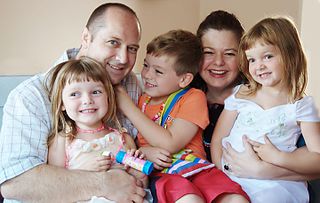 *pix
*pixOf course you do.
The word courage comes from the Latin 'cor' meaning heart. Courage means going into the unknown despite fear and being led by the heart.
If your child suffers from an eating disorder her life is in danger. The steps you take to try to save her are not as clear as rescuing her from a fire. You can't reach into her inner world and pull her out of a destructive way of thinking, feeling and behaving. But, you can take some heart-guided actions that help to support and heal your child. Some actions may appear straightforward while others may be confronting and painful. However, like facing any danger to rescue your child, your love and courage will equip you to face the challenges ahead.
Three points to remember when you look at the courageous acts required to support your child and help her heal:
• Creating a healthy family system surrounds the eating disorder child with a stable, supportive, caring, respectful and trustworthy environment that supports her recovery.
• All family systems have strengths and weaknesses. Functional families can contain a child with an eating disorder. Many dysfunctional families do not give rise to a child with an eating disorder.
• Nevertheless, while a family does not create an eating disorder, a family that strives to be as honest and healthy as possible can help a child with an eating disorder to heal.
.
Ten Acts of Parental Courage
1. Be courageous about communicating.
Keep communication clear and open with your spouse. Negotiate any differences so your day-to-day living with each other and your family reflects your shared values.
2. Be courageous about saying no and honoring limits and boundaries.
Establish and maintain respectful boundaries for yourself and the people around you. Say "no" when "no" is required. Expect yourself and others to keep their word and carry out their responsibilities. This relates to paying bills, living within an allowance or budget, transportation needs, laundry, maintenance of personal property (including cars, clothes, rooms, bureau and desk drawers, etc.) .
3. Be courageous about being honest.
Establish an honest relationship with your spouse and dissolve or resolve secrets. If you live in a complex family structure, establish an authentic relationship with your spouse and your child's other parent and any other children and stepchildren.
4. Be courageous and patient in listening.
Learn to quietly and with generous patience listen to any member of your family, especially during times of intense emotion. Then, without taking any action or supplying any solutions, articulate your understanding of what they say and feel and mean. Ask them to help you understand if they think you are missing something.
5. Be courageous about honoring your own capacity for joy.
Find or rediscover a joyous and satisfying activity for yourself and participate in it on a regular schedule. (Remember to honor your boundaries and follow through for yourself.)
6. Be courageous about recommitting to your marriage.
Find or rediscover a joyous and satisfying activity for you and your spouse and participate together on a regular schedule. (Remember to honor your boundaries and follow through.)
7. Be courageous about facing reality without judgment.
Accept the fact that all actions and inactions have consequences. Meet those consequences with caring, empathic and neutral acceptance (in other words, don't blame others and don't take on other's responsibilities). Also know and teach that consequences are not punishments but neutral events. A consequence of rain is that we can get wet. We then decide what actions we will take to deal with the rain. The rain is not punishing us (even if it's inconvenient to our plans).
8. Be courageous about letting your children grow up to be independent.
Know in your heart that your children are temporarily in your care while you raise them to be competent, responsible, courageous, resilient and compassionate adults. You raise them to maturity, and then they leave. Your primary relationship is with your spouse. (In other words, be wary of situations that align one parent with a child and isolate the other parent. This gives a confusing and problematic message to a child about his or her power and position in the family system. This weakens and confuses the child and undermines the marriage.)
9. Be courageous about caring for yourself.
Regardless of how anyone in or out of the family responds, live a healthy lifestyle: reasonable and healthful portions of various foods in regular meals presented and eaten with grace; reasonable and healthful amounts of regular exercise; reasonable and healthful amounts of regular sleep; reasonable and healthful amounts of work and play.
10. Be courageous about trusting that a healthy present will bring a healthy future.
Know that living an honest and healthy life yourself, loving and honoring your spouse, respecting boundaries and both of you being there for each other will affect your child in positive ways and, over time, contribute greatly to his or her healing.
As caring and concerned parents you will find the best therapeutic treatment that's available to you for your child. Supporting her recovery work, spending money, giving time and trust, perhaps driving long distances are part of what you do to support her recovery plan.
However, your love, caring, respect and courage in building a solid, generous, safe and trustworthy family environment for yourself and the others in your family, where she is a part, contributes immeasurably to her recovery. The lovely part of following through on these tenHealthy Future acts of courage is that you will all reap benefits.
Joanna Poppink, MFT, Los Angeles eating disorder recovery psychotherapist
*pix Family, photo taken by Catherine Scott. This photo is licensed under the Creative Commons Attribution-Share Alike 2.0 Generic license


Add comment